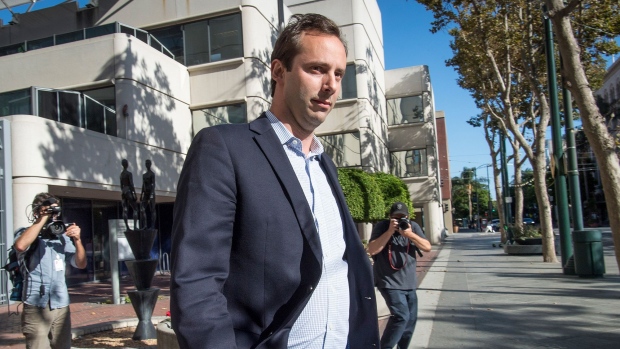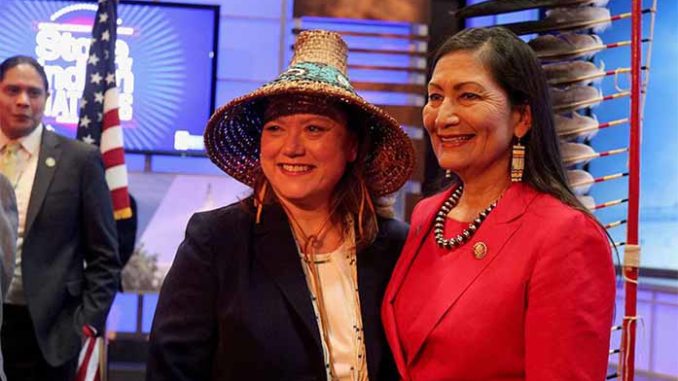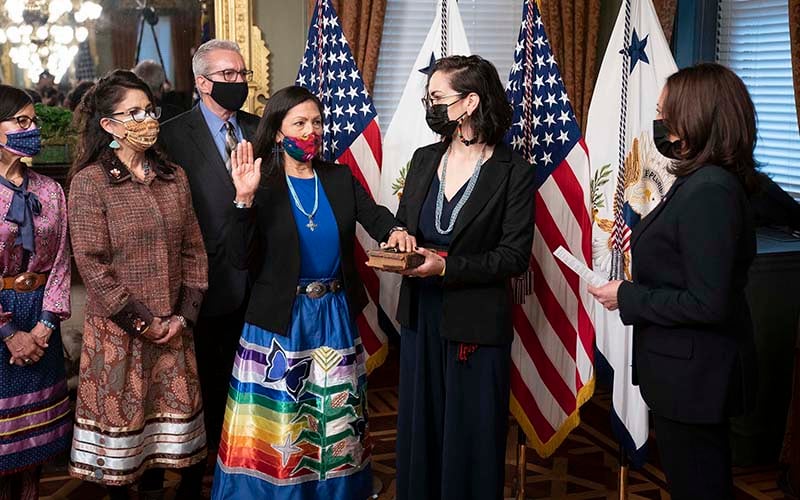David Lawder and Dave Graham
Publishing date:Feb 14, 2022 •
WASHINGTON/MEXICO CITY — U.S. imports of new Mexican avocado harvests will stay suspended for “as long as necessary” to ensure the safety of U.S. inspectors who were threatened verbally in Mexico’s western Michoacan state, the U.S. Department of Agriculture (USDA) said on Monday.
The halt of export inspections on Feb. 11 by the USDA’s Animal and Plant Health Inspection Service (APHIS) marks another source of trade tension between Washington and Mexico City.
All U.S.-bound avocado crops must be inspected for safety, and those approved before Feb. 11 could still be exported, the agency said.
USDA said the suspension was ordered “following a security incident (verbal threat) involving our employees. The suspension will remain in place for as long as necessary to ensure the appropriate actions are taken, to secure the safety of APHIS personnel working in Mexico.”
The details of the incident were not immediately clear. Michoacan, Mexico’s top avocado producing state and the only one certified to export to the United States, has long had security issues linked to problems with drug gangs.
Mexican President Andres Manuel Lopez Obrador said on Monday authorities are looking at the U.S. decision and suggested there may be political motivations behind the suspension.
Speaking at a regular government news conference, Lopez Obrador said the matter may have been influenced by groups with something to gain from the suspension, without elaborating.
“The truth is, there’s always an economic, a commercial interest behind it,” he said. “Or there’s a political attitude.”
The Biden administration has recently brought a number of complaints about Mexican enforcement of labor rights and environmental standards under the updated U.S.-Mexico-Canada Agreement on trade. The United States also voiced concerns about government regulations in its telecoms and energy sectors.
Lopez Obrador pointed to a recent decision by U.S. trade officials to seek talks with Mexico over its environmental obligations under a North American trade agreement, including protection of the critically endangered vaquita porpoise.
But he said Mexican relations with the U.S. government were “very good.” (Reporting by Dave Graham; Editing by Jan Harvey and Aurora Ellis)
By Elizabeth Elkin, Carolina Gonzalez and Leslie Patton
February 15, 2022 —
New York: The great avocado affair of 2022 began with a little-noticed weekend press release from Mexico’s Agriculture and Rural Development Ministry. The US was shutting down imports of avocados from Mexico because one of its inspectors received a threatening phone call.
Details are hard to come by. Who made the threat? What was the threat?
What’s known is this: Mexican President Andres Manuel Lopez Obrador has not taken kindly to the US action.

A client chooses fresh avocados at Michoacan market in Mexico City on Monday. The Mexican President says a US suspension on imports and recent environmental complaints are part of a conspiracy against his country.CREDIT:AP
On Monday (Tuesday AEDT) he said Mexican authorities would look into the allegations but also made clear he believed there was something fishy about the incident. There were political and economic interests, Obrador said, wanting to keep the Mexican avocados out of the US market.
One group that wants the avocados to keep flowing north: US consumers, who now eat more guacamole than ever. It’s only a matter of time before the import halt will squeeze supplies, as Mexico accounts for 80 per cent of the US market, and drive up the price of yet another product in an economy grappling with its worst inflation surge in four decades.
“We could see a significant reduction in availability” of avocados in the US and higher prices as a result, said David Magana, senior analyst for Rabobank International in Fresno, California.
The ban on avocados from Michoacán, a coastal state just west of Mexico City – the only Mexican state fully authorised to export to the US – went into effect on February 11, a day before Mexico issued its statement. The US Department of Agriculture only confirmed its actions on Monday.
“US health authorities ... made the decision after one of their officials, who was carrying out inspections in Uruapan, Michoacan, received a threatening message on his official cellphone,” the department wrote.
Neither side would answer questions on the nature of the alleged threat, but the state has been riddled by violence since drug cartels took over large swathes of the state years ago.
Many Michoacan avocado growers say drug gangs threaten them or their family members with kidnapping or death unless they pay protection money, sometimes amounting to thousands of dollars per acre. The fruit is the state’s most lucrative crop. Extortion of avocado growers has gotten so bad that vigilantes have formed a “self-defence” group and pledged to aid police.

Members of the so-called self-defence group known as United Towns or Pueblos Unidos in Nuevo Urecho, Michoacan, Mexico, in November.CREDIT:AP
The import ban came on the day that the Mexican growers and packers association unveiled its Super Bowl ad for this year. Mexican exporters have taken out the pricey ads for almost a decade in a bid to associate guacamole as a Super Bowl tradition.
This year’s ad shows a Julius Caesar character and a rough bunch of gladiator fans outside what appears to be the Colosseum, soothing their apparently violent differences by enjoying guacamole and avocados.
The association did not immediately respond to a request for comment on the ban, which hits an industry with almost $US3 billion ($4.2 billion) in annual exports.
Avocados are already the most expensive in North America for this time of year in government data going back two decades due to the labour shortfalls, higher production costs and wage hikes that have plagued the broader economy. It’s one of the many products helping to push global food prices closer to a record high.

This photo provided by Avocados From Mexico shows a scene from Avocados From Mexico 2022 Super Bowl NFL football spot.
At the same time, demand for the fruit is booming. Per-capita consumption doubled in the 10 years through 2020 to 4 kilograms, and could surpass 4.9kg by 2026, Magana said, citing industry projections.
Separately on Monday, Mexican fishing boats in the Gulf of Mexico were “prohibited from entering US ports, will be denied port access and services,” the National Oceanic and Atmospheric Administration said, in response to years of Mexican boats illegally poaching red snapper in US waters in the Gulf.
That came after the US Trade Representative’s Office filed an environmental complaint against Mexico on Thursday for failing to stop illegal fishing to protect the critically endangered vaquita marina, the world’s smallest porpoise, in the Gulf of California, also known as the Sea of Cortez. Nets set illegally for another fish, the totoaba, drown vaquitas.
The office said it had asked for “environment consultations” with Mexico, the first such case it has filed under the US-Mexico-Canada free trade pact.
Bloomberg, AP













